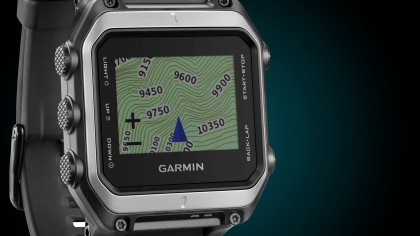Here's our wish list for the ultimate fitness tracker
The best bits of every tracker crammed into one device

GPS is a must for any self-respecting fitness tracker designed for people who are after a bit more than just a reminder of how sedentary they are. If you've only ever heard of GPS in your car's sat-nav, here's a quick run-down.
GPS uses a chip that tracks the position of multiple satellites in Earth's orbit, enabling it to pinpoint your location to within a few feet. It's kinda amazing, and all fitness trackers would benefit from it.
For bonus points, we'll also take GLONASS support. This is the same sort of thing, but where GPS uses a system of 'at least 24' US satellites, GLONASS uses another 24 Russian satellites as well – so you double your chances of success, to put it in simple terms.
Surprisingly, few fitness trackers actually use GPS, because it eats battery like it's discount chocolate and is likely to get under-informed people upset, as it can take a little while to 'lock on' to the signal.
Almost all good runners' watches have GPS, but so do the Fitbit Surge, the Garmin Vivoactive, the Microsoft Band 2, the Motorola Moto 360 Sport and Sony SmartWatch 3.
We want more, though, particularly in smaller devices. The key to that? The new battery tech we've already talked about.
Get daily insight, inspiration and deals in your inbox
Sign up for breaking news, reviews, opinion, top tech deals, and more.
Current page: Satellite navigation
Prev Page At least a week's active use, or a marathon-plus Next Page A wrist HR monitor that actually worksAndrew is a freelance journalist and has been writing and editing for some of the UK's top tech and lifestyle publications including TrustedReviews, Stuff, T3, TechRadar, Lifehacker and others.
